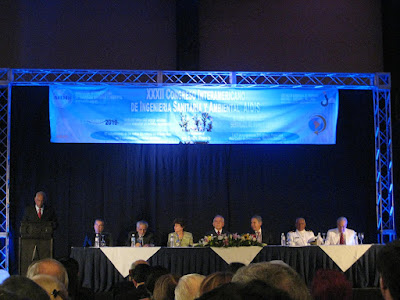
Tropical storm Tomas was in full swing on the island, dumping rain and leaving a steamy, humid after effect. The conference center must have hosted a dozen weddings in the week we were there. The most surreal part, however, was our proximity to Haiti. Nothing about Punta Cana indicates that the poorest country in our hemisphere is some 300 miles to the west. To be fair, nothing about Punta Cana indicates the existance of any other place could be possible. The beach was quite pretty and idyllic and made me think of (real, old fashioned) pirates and the first discoveries of the Caribbean islands, which then made me quite sad. Though Haiti may be the starkest example of the oppression, exploitation, and devestation wrecked by brutal colonization, slavery, and more modern forms of domination, no Caribbean island is without these traces. Haiti was the first country in the America's to win their independence, back in 1804, and yet today they cannot even choose their own president.

While we were in Punta Cana we drank a lot of bottled water and talked about the cholera crisis next door and about engineering techniques. This juxtaposition was not lost on folks, but what could we do, at that moment, to counter act it? Yet you end up in a fancy conference center on the beach taking about clean water and you begin to wonder how you got there and why exactly its useful. I do believe that, for engineers and others with practical skills and jobs in the area, the whole thing was necessary and beneficial, so I am not all complaints. Many talks were quite inspiring or innovative or informative.

The international effort is so necessary and so frustrating. Coordination is perhaps not a human strength. But giving ourselves opportunities to be together offers a network of support that I think makes this work possible. And I include everyone when I imagine "ourselves" or "our work", it is in partnership and in solidarity that we move forward.

